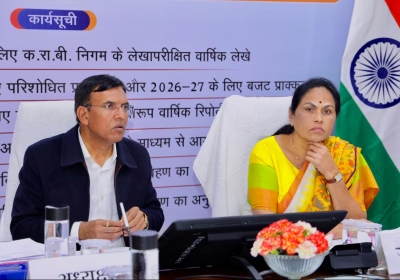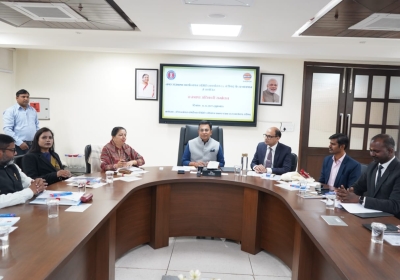.jpg)
first-ever successful transplant of a pig heart into a human chest cavity
Live pig heart transplanted into a human patient: US
Last Monday, a Maryland hospital performed the first-ever successful transplant of a pig heart into a human chest cavity. The patient, David Bennett Sr., is said to be as happy as a pig in mud three days after the rigorous seven-hour procedure.
“It’s working and it looks normal,” Dr. Bartley Griffith, who operated, told The New York Times. “We are thrilled, but we don’t know what tomorrow will bring us. This has never been done before.”
Bennett's life was saved by the extremely experimental operation, which was carried out as a last-ditch effort. The 57-year-old, who had been diagnosed with a life-threatening heart ailment, had reached the stage where he was no longer eligible for a human heart transplant. In the weeks leading up to the procedure, he had been hospitalized due to a heart arrhythmia. He was only kept alive by heart-lung bypass equipment.
A day before the surgery Bennett released a statement saying, “It was either die or do this transplant. I want to live. I know it’s a shot in the dark, but it’s my last choice.”
On Monday, the handyman was breathing on his own, even though he was still hooked up to machines that were supposed to help him cope with his new heart. He could be removed from the machine as early as Tuesday. Bennett will be monitored for the next few weeks, according to experts at the University of Maryland Medical Center.
The first transplant, which was granted "compassionate use" emergency approval by the Food and Drug Administration on New Year's Eve, demonstrated for the first time that an organ from a genetically modified animal may be safely put in a human being without instant rejection. It comes only months after doctors in New York successfully transplanted a genetically engineered pig's kidney into a brain-dead patient on a ventilator.
According to the Associated Press, the pig that gave Bennett's heart had undergone a gene-editing technique that eliminated a sugar in its cells that catalyzes rapid organ rejection. After decades of failure, several businesses, notably Revivicor, which gave Bennett's pig donor, are still fine-tuning the xenotransplantation technique.
The procedure on Friday, according to the Maryland experts, was a scientific breakthrough that could give hope to a large number of terminally ill patients. In the United States, more than 100,000 patients are waiting for organ transplants. Every day, about 12 people on these waiting lists pass away.
The Maryland transplant, according to Dr. David Klassen, chief medical officer of the United Network for Organ Sharing, "I think you can be characterized it as a watershed event."
But, he continued, "it's important to maintain perspective." However, ethical policy recommendations for these procedures are still being developed, and it could be years before the treatment emerges from clinical trials and enters popular use.
Over the previous five years, Griffith, who directs the Maryland medical center's cardiac transplant program, has successfully transferred the hearts of dozens of pigs into baboons. According to the New York Times, in mid-December, he approached Bennett with an offer to do a similar treatment.
Bennett's initial reaction surprised the doctor, who remarked, "I wasn't sure he was understanding me." "And then he said, 'Will I oink?'"
"The anatomy was a little squirrelly," Griffith told the Times during the procedure. "We had a few moments of 'uh-oh.'" But, thanks to "some brilliant plastic surgery," the transplant team was able to right the ship. "The heart fired right up" when they released the final clamp, he said.
Bennett's prognosis remains uncertain, according to Maryland experts. "With this gentleman, we're learning a lot every day," Griffith explained. "So far, we're happy with our decision to proceed." And he is, as well: today he has a big smile on his face."





